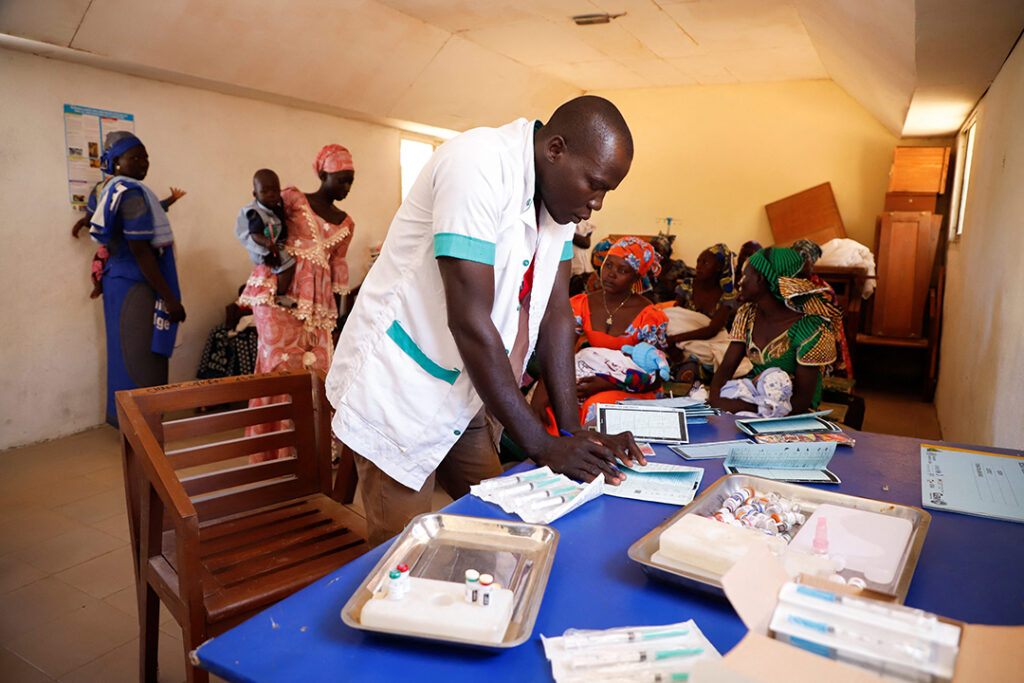ADF STAFF
A dengue fever outbreak killed nearly 600 people in Burkina Faso in October 2023. A stream of disinformation followed.
Social media users, including many believed to be backed by the Russian government, began attacking work by Target Malaria, a not-for-profit research organization that fights mosquito-borne illnesses. The group, which is supported by the Bill and Melinda Gates Foundation, has worked to prevent malaria in Burkina Faso since 2012.
But social media users falsely accused the group of spreading disease.
“When will Africans understand that Bill Gates is a criminal?” wrote one user on X. “He is involved in spreading malaria, HIV, Ebola and COVID.”
Another user accused Target Malaria of creating biological weapons, but heaped praise on Russia, according to Agence France-Presse.
In the face of the disinformation, Target Malaria was forced to respond by calling the attacks “false” and “deeply regrettable.”
The disinformation campaign is just one part of a continentwide effort by Russia to discredit public health initiatives and sow mistrust about those working to combat some of the world’s deadliest diseases.
A primary target of Russian attacks is the United States, which has funded approximately $100 billion in public health initiatives in Africa over the past 20 years. The efforts include the President’s Emergency Plan for AIDS Relief (PEPFAR), which is estimated to have saved 18 million lives globally. U.S. officials believe that instead of trying to compete with these health achievements, Russia has launched campaigns to undermine them.
“The Russians probably find it frustrating that American health support has been so successful, and they’re trying to challenge it and make people question it,” said James Rubin, the U.S. State Department Global Engagement Center special envoy and coordinator.
But the disinformation puts lives at risk by making people distrust health professionals and, possibly, forgo treatment. “They might not go to get their vaccines, get their health care because they’ve been misled into thinking that it’s part of some conspiracy theory the Russians have invented,” Rubin said. “Russia’s intelligence services, by doing this, they are showing they don’t care about African lives.”
Observers say this is part of a pattern of Russian information warfare and a revival of an old tactic. During the Cold War, the Soviet Union falsely claimed that HIV was created in a U.S. medical laboratory and spread other false accusations relating to diseases and health care.
“This kind of misinformation on medical issues, particularly on infectious disease and the dangers of Western-sponsored health programs, goes back to Soviet times,” Judy Twigg, a professor at Virginia Commonwealth University who is an expert on global health issues, told The Wall Street Journal.
Today, a Russian-backed group known as the African Initiative is responsible for spreading health disinformation in Africa, The Wall Street Journal reported. The group runs English and French-language channels on the messaging app Telegram and recently held a conference in Ouagadougou where panelists touted traditional medicine and tried to undermine the credibility of Western pharmaceutical companies.
The misinformation effort comes at a particularly perilous moment. Burkina Faso has begun an immunization program offering a new anti-malaria vaccine, RTS,S, to 250,000 children across 27 of its health districts. Burkina Faso is one of countries in the world where malaria has hit the hardest, with approximately 12.5 million cases each year causing about 19,000 deaths. Children and pregnant women are among the most vulnerable.
But health professionals at clinics now say they are fighting misinformation about the vaccine. Doctors and nurses have heard mothers repeating a false claim that the vaccine will make their children sterile.
“We reassure them through hospital talks that this is not the case,” Ali Diallo, a community-based health agent in the health district of Dori, told Gavi, the Vaccine Alliance. “When women come for consultations, we assure them that the vaccine is safe and effective. Our goal is to break these chains of false information.”

